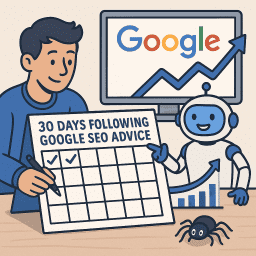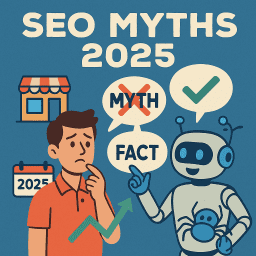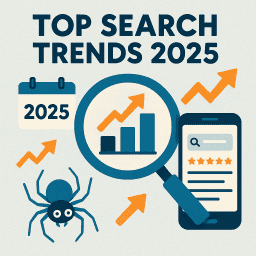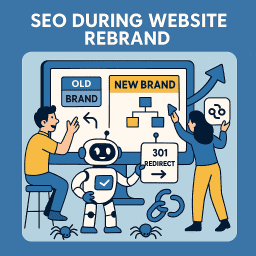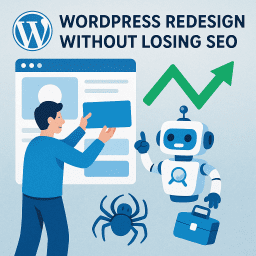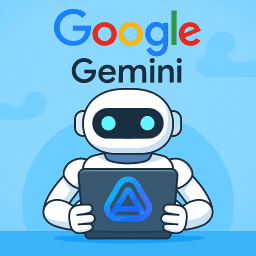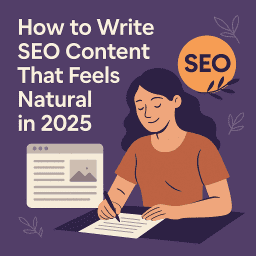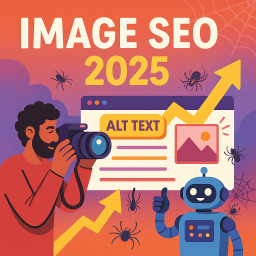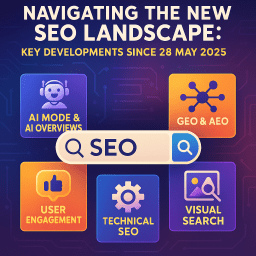How to Train & Use AI Tools Like ChatGPT for SEO Tasks
🧠 Boost productivity and precision with smarter AI prompts
⚡ Get AI to Do Your SEO Heavy Lifting (The Smart Way)
The SEO landscape in 2025 is fast-paced, data-heavy, and increasingly reliant on intelligent automation. One of the biggest game-changers? AI tools like ChatGPT. But here’s the catch: these tools are only as effective as the prompts and structure you give them.
In this article, we’ll show you how to “train” AI tools (no coding required) so they become powerful SEO assistants—capable of streamlining your research, content creation, audits, and reporting.
🤖 What Does “Training” AI Actually Mean?
You’re not programming an AI model from scratch. Instead, you’re providing it with clear instructions, consistent input patterns, and background knowledge that helps it give you relevant, reliable responses.
Think of it as briefing an intern—if you provide context, guidelines, and examples, they’ll deliver better results every time.
🔍 Use Case 1: Keyword Research
Want ideas for long-tail keywords? Try giving AI this structured prompt:
Act as an SEO specialist. I need 15 long-tail keywords for the topic "eco-friendly cleaning products" in the UK. Exclude brand names. Focus on low competition.
- 🎯 Tip: Add region, language, and competition level for better relevance
- 📊 Combine outputs with tools like Google Trends and Ahrefs for validation
📝 Use Case 2: Content Briefs and Outlines
Cut down time spent planning blog posts or landing pages. Use a prompt like:
Write a full content outline for a blog post titled "How to Reduce Your Carbon Footprint at Home" targeting the UK audience. Include H2s, key points under each section, and suggested meta description.
- 📚 Give examples of tone or structure if needed
- ✏️ You can follow up by asking for an intro paragraph or FAQ section
🧪 Use Case 3: On-Page SEO Suggestions
Paste a blog post and ask ChatGPT to check for keyword use, formatting, and clarity:
Review the following blog post for on-page SEO improvements. Focus on H1/H2 use, keyword placement, meta title optimisation, and internal linking opportunities.
Great for quick audits before publishing—or refreshing old posts.
📑 Use Case 4: SEO Reports and Client Summaries
Turn complex data into digestible insights:
Summarise this SEO report for a client who runs a local bakery. Keep the tone friendly and non-technical. Highlight keyword improvements and organic traffic growth.
- 📈 Add data from GA4 or Search Console to get tailored summaries
- 🧾 Ask for a bullet-point list or narrative format
🔄 Use Case 5: Competitor Analysis
ChatGPT can help compare two competitors’ SEO strengths:
Compare the SEO strategy of [Competitor A] and [Competitor B] based on backlink profile, content depth, and keyword strategy. What can I learn from each?
- 🔗 Provide data from Ahrefs or SEMrush if needed
- 🔍 Ask follow-up questions for deeper insights
💬 What the Experts Are Saying
- Kristina Azarenko: “AI won’t replace SEOs—but SEOs who use AI will replace those who don’t.”
- Mike King: “The value of AI is in scale and speed. But strategy still requires a human brain.”
- Andy Crestodina: “Prompts are the new superpower. Mastering them is mastering AI.”
🛠️ Bonus: Prompt Engineering Tips
- 🧠 Be specific: Give examples, goals, and context
- 🔁 Iterate: Ask follow-ups or refine output in stages
- 📍 Set tone: Friendly, professional, technical—be clear
- 📏 Limit scope: Tell the AI how long or detailed to be
Also Read:
Best ChatGPT SEO Prompts for 2025 (50 Expert Examples)
How to Use ChatGPT for SEO Content, Planning and Strategy
✅ Conclusion
AI can transform how you manage your SEO workflow—but only if you guide it well. With clear prompts, strategic direction, and human oversight, tools like ChatGPT can save hours on routine tasks while elevating your output.
Train your AI like you’d train a team member: clearly, consistently, and purposefully. The result? A virtual SEO assistant that works 24/7—without sacrificing quality.
📝 Recap and Clarify: Post-Specific FAQs
What is an AI SEO workflow?
An AI SEO workflow is a structured process that uses artificial intelligence—like ChatGPT—to assist with keyword research, content creation, on-page optimisation, and reporting.
How can ChatGPT help with SEO?
ChatGPT can generate keyword ideas, write SEO-friendly blog posts, create metadata, suggest internal links, and simulate user queries to guide content optimisation.
Is AI-generated content good for SEO?
Yes—if it’s edited, fact-checked, and aligned with user intent. Google focuses on quality and usefulness, regardless of whether a human or AI created the content.
Can ChatGPT replace an SEO expert?
No. ChatGPT is a powerful assistant, but strategic decision-making, site auditing, and interpreting data still require human SEO expertise and oversight.
What tasks in SEO are best suited for AI tools?
AI is great for brainstorming titles, writing outlines, producing draft copy, summarising research, rephrasing content, and automating repetitive tasks like metadata generation.
How do I train ChatGPT to follow my SEO workflow?
You can train ChatGPT by providing clear prompts, examples, and workflow instructions. Over time, you can build templates and even use plugins or APIs to streamline integration.
Is using ChatGPT against Google’s SEO guidelines?
No. Google’s guidelines say content should be helpful and created primarily for people—not that AI use is forbidden. AI-assisted content is fine if it meets quality standards.
Can AI help identify search intent?
Yes. Tools like ChatGPT can analyse a keyword and suggest whether it’s informational, transactional, or navigational—helping you match content format to user needs.
What are the risks of using AI in SEO?
Risks include factual inaccuracies, generic content, and potential duplication. Always review, edit, and enhance AI output to ensure it aligns with brand tone and SEO goals.
Should small businesses use AI in their SEO process?
Absolutely. AI tools can save time and improve productivity—especially for small teams—when used thoughtfully to support research, writing, and reporting.
The future of SEO belongs to those who know how to prompt it. – David Roche



